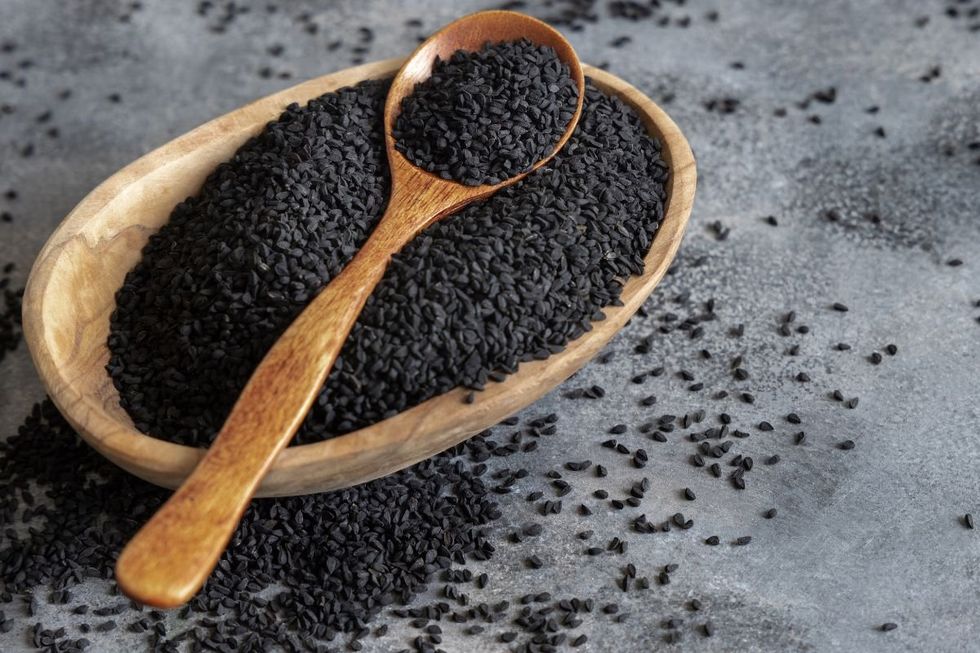High cholesterol: Black seed shown to have significant blood lipid-lowering effect, say scientists

WATCH NOW: Dr Natasha Fernando shares dietary tips to maintain healthy cholesterol levels
|GBN

'It was gratifying to see black cumin comprehensively demonstrate actual blood lipid-lowering effects in a human trial'
Don't Miss
Most Read
Japanese researchers have found that a daily spoonful of black cumin seed powder can improve cholesterol profiles, according to new findings from Osaka Metropolitan University.
The clinical trial revealed that participants who took five grams of the spice each day experienced reductions in harmful cholesterol, while beneficial cholesterol levels rose.
Scientists conducting the research believe the traditional spice could play a role in combating obesity and diseases linked to modern lifestyles.
The team's laboratory work has also indicated that compounds in black cumin might prevent the development of fat cells, though this aspect requires further investigation beyond the current human trial results.

The spice could fight lifestyle-related diseases
|GETTY
The eight-week study involved 42 participants divided into two groups. Twenty-two individuals incorporated the black cumin powder into their daily routine, while twenty people served as controls and experienced no alterations to their cholesterol measurements. The amount consumed equated to approximately one spoonful per day.
Those taking the supplement demonstrated measurable improvements in their blood lipid profiles after two months, with reductions in low-density lipoprotein cholesterol and elevations in high-density lipoprotein cholesterol. Control participants, on the other hand, maintained their original cholesterol levels throughout the trial period.
These cardiovascular benefits emerged without any other dietary or lifestyle modifications, suggesting the spice itself was responsible for the observed changes.
Food scientist Akiko Kojima-Yuasa expressed satisfaction with the trial's outcomes, stating: "This study strongly suggests that black cumin seeds are useful as a functional food for preventing obesity and lifestyle-related diseases."
She added: "It was so gratifying to see black cumin comprehensively demonstrate actual, demonstrable blood lipid-lowering effects in a human trial."
The researchers propose that these cardiovascular improvements could reduce the likelihood of heart-related conditions developing later in life.
Their laboratory investigations using cultured cells have additionally suggested that black cumin might interfere with the maturation process of adipose tissue, though this mechanism remains under investigation.
The team believes their findings support the spice's potential role in promoting metabolic health through dietary intervention.
LATEST DEVELOPMENTS
The seeds of Nigella sativa have been utilised in traditional remedies and cuisine throughout western Asia and eastern Europe for millennia, with archaeological records documenting their cultivation across thousands of years.
The plant's seeds feature prominently in curry dishes and vegetable preparations, while folk medicine has employed them in various forms, including oils, powders, pastes and extracts.

The plant's seeds feature prominently in curry dishes
|GETTY
Contemporary scientific examination of black cumin remains relatively recent, with most research comprising animal and cellular studies.
Initial investigations have pointed towards potential anti-inflammatory and antioxidant properties, though comprehensive evidence remains limited.
The Osaka findings contribute to a growing body of small-scale studies examining cumin's effects on weight management and cholesterol, although researchers acknowledge that results across different trials have been inconsistent and certain findings remain disputed.
Our Standards: The GB News Editorial Charter










